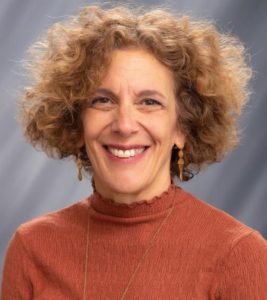Tagged: “Communities”
Is Forgiveness Always Appropriate When Faced with Serious Injustices?
Is forgiveness always appropriate when there is a deep unfairness? First, let’s examine the response a little more. When we ask this question, are we inquiring about a specific person or about the virtue of forgiveness itself? Here is where there is a crucial difference.

Image by Pexels.com
Since forgiveness is a moral virtue, we should ask our question of all virtues if our attention is on the virtue itself. As we broaden our view to focus on all moral virtues, we can consider the question’s opposite: For example, when is a quest for justice, one of the moral virtues, not appropriate? Put another way, can you picture a situation in which you might be arrested for intentionally acting in a just way? Would people condemn themselves for acting fairly? If not, then it appears to be the case that justice is always fitting in every situation. Is there ever a time when patience is inappropriate? How about showing kindness? I can hear someone say something like, “Well, I won’t be kind if someone is hitting me over the head with a frying pan.” I agree that your leaving the abuse is good because it is a protection for you. As a second possible response, you certainly are entitled to attempt removing the frying pan from the person’s grasp. You can act in either situation with kindness. Kindness is appropriate even in this instance. If kindness is used with other virtues (justice, courage, temperance) to help save the individual from doing the head-banging, then that is acceptable in the sense of being morally good.
My argument is that since all virtues are centered on the morally beneficial aspects of human interaction, then acting morally is always appropriate, and practicing forgiveness is one of these moral virtues.
The second aspect of the question (Is forgiveness always appropriate?) asks about the psychological suitability of practicing the virtue for any given individual. Does forgiveness make sense for any particular person all the time? This time, the answer is no, it is not always appropriate for the following reasons: a) the offended person may be too shocked by what happened to be ready to offer forgiveness at this time; b) the offended person may need to learn more about forgiveness to exercise forgiveness properly rather than some false form of it; and c) forgiveness is a supererogatory virtue that is not demanded of any one person at a particular time because it is not a virtue that society demands. It is the person’s decision to extend forgiveness or not on any particular occasion.
Is forgiveness always appropriate?
Yes, if we are talking about the quality of this term, specifically its quality of being a moral virtue.
Must, then, all people turn immediately to forgiveness when treated unjustly?
No, if we are discussing the psychological makeup of a certain individual, including both this person’s degree of hurt and understanding of forgiveness, as well as the specifics of the injustice, such as its gravity, duration, and time since it happened. Some people need time to be angry, to sort out what forgiveness is, and then move forward with it when the person is ready.
![]()
Forgiveness Education Identified by the CDC as a way to “Promote Social, Emotional, and Behavioral Learning”
As described in the abstract in Freedman’s (2018) study, forgiveness education was implemented with 10 at-risk adolescents

Dr. Suzanne Freedman
attending an alternative high school in a Midwestern city. Twenty-one participants were randomly assigned to either the experimental group (forgiveness education class) or the control group (personal communications class). Classes met daily for 31 sessions for approximately 23 hours of education. Enright’s process model of forgiveness was used as the focus of the intervention. After the education, the experimental group gained more than the control group in forgiveness and hope, and decreased significantly more than the control group in anxiety and depression. Verbal reports from the experimental participants following the education also illustrate the positive impact forgiveness had on the students.
UPDATE – 2nd International Conference on Forgiveness in Israel Postponed
We had posted in September 2023 about the 2nd International Conference on Forgiveness occurring this coming July 2024 at Zefat Academic College in Israel. With the ongoing conflict in Israel the forgiveness conference has had to be postponed indefinitely, although the conference team hopes to reschedule for some time in 2025. Please click this link for the full announcement from The Forgiveness Conference Team at Zefat Academic College and read below for the original announcement about the conference.
Zefat Academic College in Israel will be hosting the 2nd International Conference on Forgiveness next summer, July 9-11, 2024. The conference website describes the conference as an event where ‘scholars, experts, and practitioners in relevant fields’ will present and discuss the following themes:
- Forgiveness as a human experience
- Forgiving within an intra/intercultural context
- The forgiver and the forgiven relationship
- Being forgiven
- Forgiveness, justice, and the law
- Forgiveness – values, virtues, and ethics
- Forgiveness in religious, social, and political conflicts
- Religious and spiritual perspectives on forgiveness

One of the keynote speakers is Dr. Suzanne Freedman, longtime member of the International Forgiveness Institute team! She will be giving a presentation entitled ‘Guidelines for Forgiveness Therapy: What Therapists Need to Know to Help Their Clients Forgive.’
If you are interested in contributing to the 2nd International Conference on Forgiveness yourself, you are invited to submit your application to present a lecture at the upcoming conference. You may choose to submit one or more types of presentation:
- Individual presentations
- Workshops
- Pre-arranged panels
The Conference Organizing Committee is unable to process email submissions so please ensure that all applications are submitted between September 1, 2023 and January 1, 2024 via this Google Form link.
All submissions will undergo peer review. Notifications of acceptance or rejection will be sent by February 1, 2024.
For more information about the conference and the types of submissions, please visit the conference website.
For further information, you may also contact the conference organizers at: forgivenessconferences@gmail.com
Dr. Enright Is Interviewed for Woman’s World Magazine

Image from Pexels.com
On December 14, 2023, Dr. Enright’s interview with Kristina Mastrocola for Woman’s World magazine appeared on their website. The article is entitled, Experts Share How to Forgive Someone and Give *Yourself* the Gift of Healing.
Click on this link to read the interview!
Dr. Enright Interviews on Wisconsin Public Radio’s “The Morning Show”

Image by pexels.com
On December 6, 2023, Dr. Enright interviewed with Kate Archer Kent, who hosts “The Morning Show” on Wisconsin Public Radio. The 43-minute episode is entitled, How forgiveness can heal individuals and communities.
Click on this link to listen to the episode!



